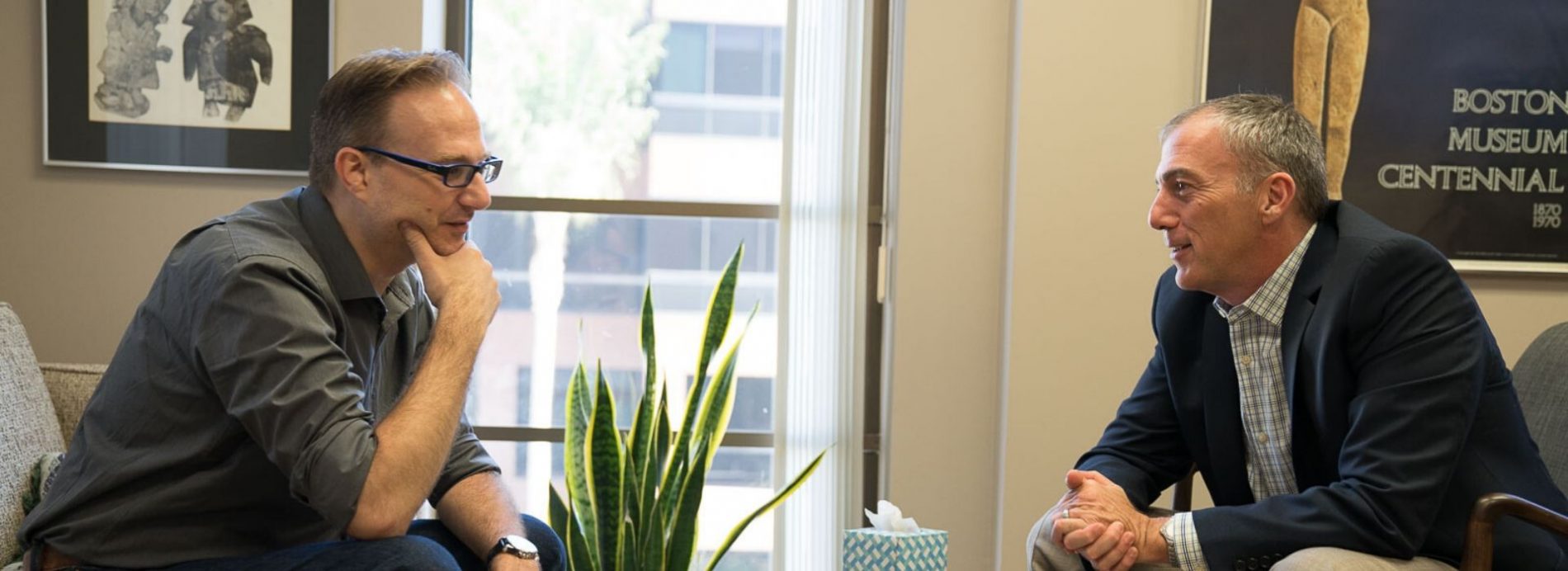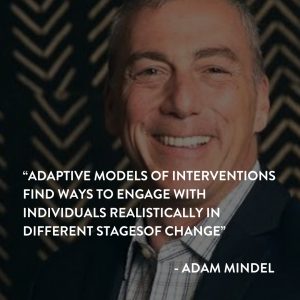Interventions and Recovery: a Process | part 3
As I look back over the last several months of working with individuals and families towards recovery, I promise I am terribly understating when I describe interventions as a process versus an event. All interventions are a process, I promise you, and I promise you so is recovery. Firsthand, I reflect on my nearly 17-year journey of recovery and recognize the years I spent in my addiction leading up to my current sobriety as all part of the process that produced the recovery that I have today.
Research shows that individuals must often go through a process of preparation before they are ready for permanent sobriety. The Transtheoretical Mode of Change by Prochaska & DiClemente is a model which describes sobriety as a movement from Denial to Contemplation to Preparation and ultimately Action and Maintenance.
Two Predominant Methods to Move Individuals from Denial to Motivated States of Change
If the above is true, then realistically how do I stage an intervention to move individuals from states of denial to more motivated states of change? I suggest there are two predominant ways:
-
- Utilizing leverage to engage individuals in treatment, with ultimately, the treatment itself as the vehicle that provides the process of resolving ambiguity and resistance to change
- Meeting individuals “where they are at”, by finding levels of care that can begin to engage individuals in a process of change.
Two important qualities required for an intervention
First, let’s cover the basics in all models of interventions, most interventionist assess for two important qualities required for an intervention
A. Influence – The capacity to have an effect on the character, development, or behavior of someone.
B. Leverage – The power to create consequences, or require behavioral change by an individual that is addicted.
I additionally assess for Attachment, which -is a deep and enduring emotional bond that connects one person to another across time and space (Ainsworth, 1973; Bowlby, 1969). Put simply, I like to know how much individuals care for and are connected to the friends and family that love them. Realistically individuals with high levels of sociopathy do not generally enter treatment without being compelled by the fear of consequences. At the same time, addiction and neurochemical changes will often resemble anti-social behavior.
Realistically individuals with high levels of sociopathy do not generally enter treatment without being compelled by the fear of consequences. Share on X
Individuals often enter treatment due to tensions in interpersonal relationships.
With over 15 years of experience working with families and individuals in treatment, I can unequivocally inform you that individuals with deep attachments to friends and family have better outcomes from interventions and addiction treatment.
Having experience and understanding the quality of influence and leverage is vital to producing positive outcomes and creating the correct type of intervention. Quite frankly it is always easiest to intervene on loving individuals who care for their friends and family, and due to interdependent relationships, there are real consequences if the loved one does not enter treatment. For example, I recently intervened on a college student who had very close relationships with his parents and extended family. From the beginning, the initial assessment it was clear that this dutiful son would be entering treatment. In addition, he was dependent upon his parents to return to college. The intervention became high-level consultation, psychoeducation, and changing family dynamics while creating an accountable path back to university with the parent’s support post-treatment.
Unfortunately, not all interventions are high in relational influence or attachment, and not all interventions have real leverage. Share on X
I describe “real leverage” as actual consequence that an individual would experience if they choose to not enter addiction treatment. These consequences may include the removal of financial support, parental or marital consequences.
“Adaptive models of interventions find ways to engage with individuals realistically in different stages of change” – Adam Mindel
Adaptive models of interventions find ways to engage with individuals realistically in different stages of change, different levels of care, and often must create processes that allow individuals to fail or provide them the dignity to try things “their way”, before accepting recommended courses of action.
For example, I recently Intervened on a successful businessman who was abusing both opiates and amphetamines. Though he loved his family, no individual in his family had any type of leverage, he was well able to finance/self-enable his own addiction. In addition, as a result of chronic amphetamine abuse, the client was dysregulated and unable to acquiesce to residential treatment and insisted upon beginning outpatient treatment in Los Angeles. An agreement was made between the client and his friends and family that included scheduled follow-up meetings to track his progress in outpatient. Ultimately, due to repeated relapses while attending outpatient treatment, the client became more intrinsically accepting of entering residential treatment of his own accord versus external coercion.
After the Intervention
Once in treatment, a further process was created moving the client through different levels of care which included residential treatment, sober living coupled with day treatment, intensive outpatient treatment, and ongoing continuing care which included week individual therapy for 6 months, psychiatric care, continued urine analysis monitoring, and of course the client’s agreement to attend self-help group throughout the recovery process. The client to this day continues in his own process of recovery and growth…the process continues.

